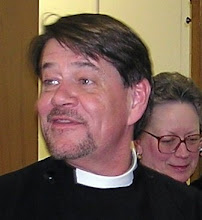A Funny Kind of Christian

Somewhere in the Middle East, Jesus Christ is strapped to a bench, his head wrapped in clingfilm. He furiously sucks against the plastic. A hole is pierced, but only so that a filthy rag can be stuffed back into his mouth. He is turned upside down and water slowly poured into the rag. The torturer whispers religious abuse. If you are God, save yourself you fucking idiot. Fighting to pull in oxygen through the increasingly saturated rag, his lungs start to fill up with water. Someone punches him in the stomach.
Perhaps this is how we ought to be re-telling the story of Christ's passion. For ever since the cross became a piece of jewellery, it has been drained of its power to sicken. Even before this the Romans had taken their hated instrument of torture and turned it into the logo of a new religion. Few makeovers can have been so historically significant. The very secular cross was transformed into a sort of club badge for Christians, something to be proud of.
Two weeks ago, the most powerful Christian in the world vetoed a bill that would have made it illegal for the CIA to use water boarding on detainees. "We need to ensure our intelligence officials have all the tools they need to stop the terrorists," said George Bush in a passable impersonation of Pontius Pilate. "This is no time for Congress to abandon practices that have a proven track record of keeping America safe."
Throughout his time in office, the president has frequently been photographed in front of the cross. Yet as his support for torture demonstrates, he has understood little of its meaning. For the story of the crucifixion and resurrection of Jesus is supremely a moral story about God's identification with victims.
The French anthropologist René Girard is the modern voice that has done most to explain the nature of this moral change. Human societies, he argues, are often held together by scapegoating. From the playground to the boardroom, we pick on the weak, the weird or the different as a way of securing communal solidarity. At times of tension or division, there is nothing quite as uniting as the "discovery" of someone to blame - often someone perfectly innocent. For generations of Europeans, the Jews were cast in the role; in the same way women have been accused of being witches, homosexuals derided as unnatural, and Muslims dismissed as terrorists.
The crucifixion turns this world on its head. For it is the story of a God who deliberately takes the place of the despised and rejected so as to expose the moral degeneracy of a society that purchases its own togetherness at the cost of innocent suffering. The new society he called forth - something he dubbed the kingdom of God - was to be a society without scapegoating, without the blood of the victim. The task of all Christians is to further this kingdom, "on earth as it is in heaven".
Yet, for all his years in office, it is hard to think that President Bush has done anything much to make this kingdom more of a reality. Instead he has given us rendition, so-called specialised interrogation procedures, and the blood of many thousand innocent Iraqis. Given all this, what can it possibly mean for George Bush to call himself a Christian?
Easter is not all about going to heaven. Still less some nasty evangelical death cult where a blood sacrifice must be paid to appease an angry God. The crucifixion reveals human death-dealing at its worst. In contrast, the resurrection offers a new start, the foundation of a very different sort of community that refuses the logic of scapegoating. The kingdom is a place of shocking, almost amoral, inclusion. All are welcome, especially the rejected. At least, that's the theory. Unfortunately, very few of us Christians are any good at it.






